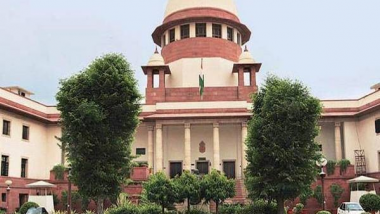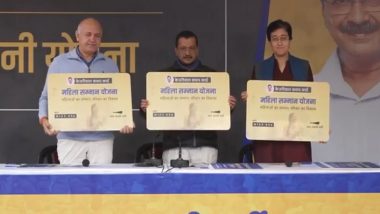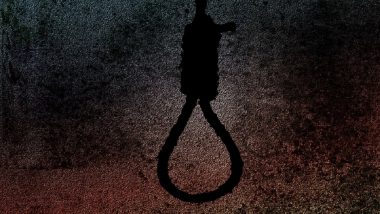New Delhi, May 1: The Tamil Nadu government has told the Supreme Court that no incident of forceful conversion has been reported in the State in the last many years and citizens are at liberty to choose the religion they want to follow. Tamil Nadu government in an affidavit also said that there is nothing illegal about missionaries spreading Christianity unless they employ unlawful means to do so.
"Article 25 of the Constitution of India guarantees every citizen the right to propagate his religion. Therefore, the acts of missionaries spreading Christianity by itself cannot be seen as something against law. But if their act of spreading their religion is against public order, morality and health and to the other provisions of Part III of the Constitution (relating to fundamental rights), it has to be viewed seriously. As far as Tamil Nadu is concerned, there has been no incidents of forceful conversion reported in the past many years," the State government said. Forced Religious Conversion: ‘Its a Menace’ Centre Tells Supreme Court; Next Hearing on December 5.
Article 25 of the Indian Constitution specifically provides the right to propagate religion, it said, adding that the right to propagate religion means the right to communicate one's religious _tenets to others by way of preaching, teaching and writing with the explicit intention of spreading the ideology of his religion. Supreme Court on Marriage Dissolution: Can Grant Divorce on Ground of Irretrievable Breakdown, Can Do Away 6-Month Waiting.
"This may produce religious ill feeling and may lead to violence, which may place the maintenance of public order and safety at .stake. Hence, the task of the State is to maintain a balance between the right to propagate religion and the right of the public order and security of life," it added. The affidavit stated that Article 25 of the Constitution, therefore, grants freedom to propagate religion "subject to public order".
"If propagation is done in any form to outrage the religious feelings of any section of the public, the same may be penalised, under section 295 A of the Indian Penal Code, for example, punishes with deliberate and malicious acts intended to outrage the religious feelings of any class of persons," it added.
The response of the State government came on a PIL filed by Delhi BJP politician and advocate Ashwini Kumar Upadhyay claiming that fraudulent and deceitful religious conversion is rampant across the country, and that the Central government has failed to control its menace. One of the rights guaranteed by the Indian Constitution is the right to Freedom of Religion, the affidavit said.
"As a secular nation, every citizen of India has the right to freedom of religion i.e. right to follow any religion. As one can find so many religions being practiced in India, the Constitution guarantees to every citizen the liberty to follow the religion of their choice. According to this fundamental right, every citizen has the opportunity to practice and spread his religion peacefully. The right to have faith in a particular religion can be traced under Article 21 of the Constitution and it is an inviolable right," it added.
The government further also denied Upadhyay's claims regarding suicide of minor girl Lavanya in Tamil Nadu after she was allegedly forced to convert by the Christian institution where she was studying and apprised the apex court that CBI is still investigating the cause of death of Lavanya.
As per the investigation done by the State police, there is no concrete proof or clinching evidence to say that she committed suicide because of compulsion to convert to Christianity, it said. The plea has sought directions to the Law Commission of India to prepare a report and a Bill to control "deceitful religious conversion".
(This is an unedited and auto-generated story from Syndicated News feed, LatestLY Staff may not have modified or edited the content body)













 Quickly
Quickly





















